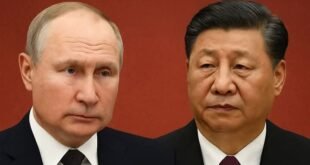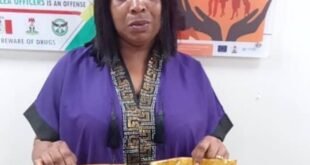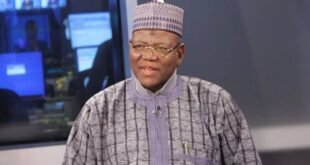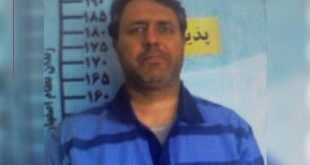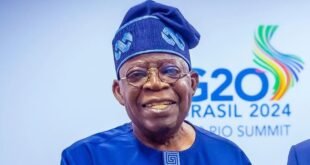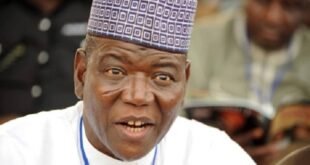Telecom stakeholders have said that the federal government’s plan to install 90,000 kilometers of fiber optic cables across the country will face several hurdles, especially from state governments, which could nip the project in the bud.
According to them, if the current issue of rights of way, multiple taxes and duties, which are under the control of the state governments, is not addressed, the project which is to be implemented through a Special Purpose Vehicle (SPV) would be a futile exercise.

The stakeholders spoke on Wednesday at the sixth edition of the Policy Implementation Assisted Forum (PIAFO) in Lagos, which focused on Nigeria’s renewed strategic agenda for the digital economy.
They stressed the need to ensure the successful implementation of the recently announced project by the Federal Government to complement existing connectivity for universal internet access across Nigeria and provide Nigeria’s digital economy with the backbone infrastructure it needs.
●Facing obstacles
Presenting a paper on “Harmonizing Fiber Deployment Strategies in Nigeria for Effective Implementation”, the Executive Director of Broadbased Communications, Mr. Chidi Ibisi, said while the government’s SPV initiative is a good plan that could help the country bridge the current digital infrastructure gap, the government will have to address the current challenges.
“For this new SPV initiative to be successful, the issues of high right-of-way (RoW) costs, destruction of fibre by road construction companies and vandals must be addressed,” he said.
Highlighting some of the challenges telecom operators face when deploying infrastructure, the Group Chief Operating Officer, WTES Projects Limited, Mr. Chidi Ajuzie, said the biggest challenge to laying fibre optic cables in Nigeria is informal RoW by hoodlums in the states.
“For states, there is a formal right of way established and some are adopting it, but it is in the informal aspect of the right of way that the complexity arises today.
“If I try to roll out fibre in some communities here in Lagos, the first thing that happens is the so-called landowners (omo onile) will come out and a different group of people will keep coming from one street to another and they will charge you. How can we get adequate broadband infrastructure in this kind of situation?” he said.
●Role of state governments
For the 90,000 kilometre fibre optic project to be a success, state governments must take ownership, according to the Chairman of the Association of Licensed Telecommunications Operators of Nigeria (ALTON), Eng. Gbenga Adebayo.
“For the project to be successful, I think the sub-national governments should take responsibility. This issue of state governments seeing right of way as IGR should be a thing of the past. We cannot talk about digital economy on one side and the government seeing those who provide the services as sources of income.
“The government has always made good policies, but the equipment, especially when they are tested far away, is the biggest problem. Governors will go to Abuja and say ‘in my state, I will give the right of way for free.’
“When you go to a state like that, they might give you the right of way for zero or one Naira, but they will give you a development tax, an education tax, a state impact tax, an ecosystem tax. When you add all that up, it’s more than the right of way taxes. So, who’s playing with whom?” he said.
Dr Ayotunde Coker, CEO of the Open Access Data Centre (OADC), was a key contributor to the forum, stressing the need for the fibre project to be built by the private sector, even though the World Bank is expected to finance it with up to $3 billion.
He said: “The World Bank can invest money in government, but it needs partnerships with the private sector as an engine of execution, and that’s what we’re pushing for in Africa.
“The key thing is that when the World Bank invests money, it should involve the private sector, understand the policies it needs to adopt, and allow the private sector to execute them effectively and make them as open as possible. With that, they can achieve what they are trying to achieve.”
He further stressed that for the project to be successful, Nigeria should learn from past mistakes to achieve the new broadband penetration targets with the required fibre optic range.
“What we need is significant bandwidth, rather than just a huge set of megabits per second deployment. We need fiber superhighways. We need the deployment of these backbones that allow us to expand.”
He further urged state governors to take part in the project by providing an enabling environment for the implementation of infrastructure, adding, “if you are a state governor and you have not participated in it, the state will not grow and it will impact your state.”
Earlier, in his opening address, the PIAFo Convener, Mr. Omobayo Azeez, said the objective of the conference was to create a middle-ground dialogue platform for digital economy stakeholders, both from the public and private sectors, to brainstorm, exchange perspectives, clarify grey areas, harmonize thoughts and create a sense of collective responsibility to accelerate our collective prosperity through technical efficiency.
The event focused on Nigeria’s renewed strategic agenda for the digital economy. According to him, the new digital economy blueprint of the Federal Government not only supports current policy directions and goals, “it also challenges us on the possibilities of reaching new frontiers with the aim of “Accelerating our collective prosperity through technical efficiency”, which is the theme of the summit.
The post PIAFo stakeholders identify obstacles to FG’s 90,000km fibre optic cable project appeared first on TheConclaveNg.
 JamzNG Latest News, Gist, Entertainment in Nigeria
JamzNG Latest News, Gist, Entertainment in Nigeria
